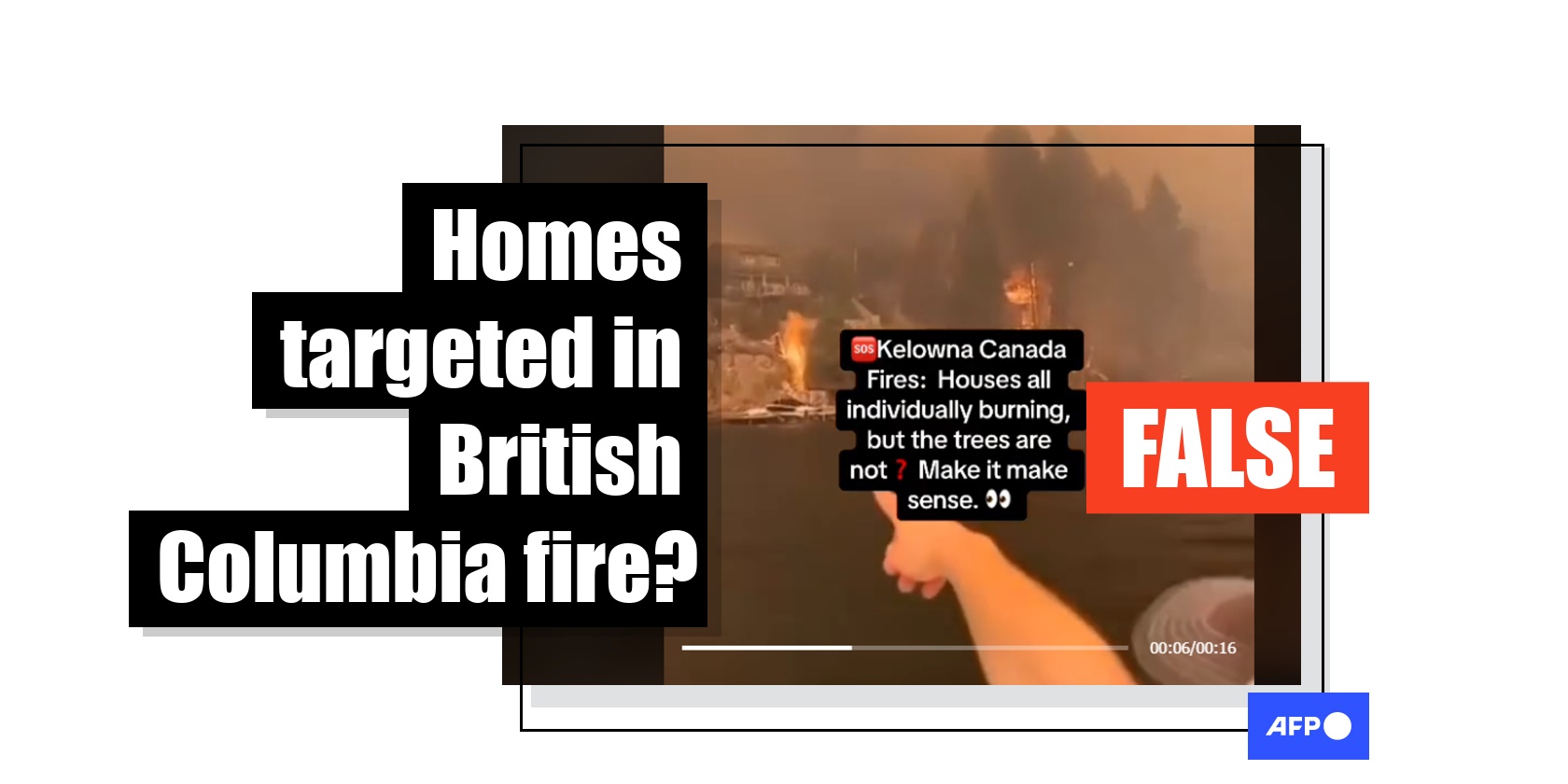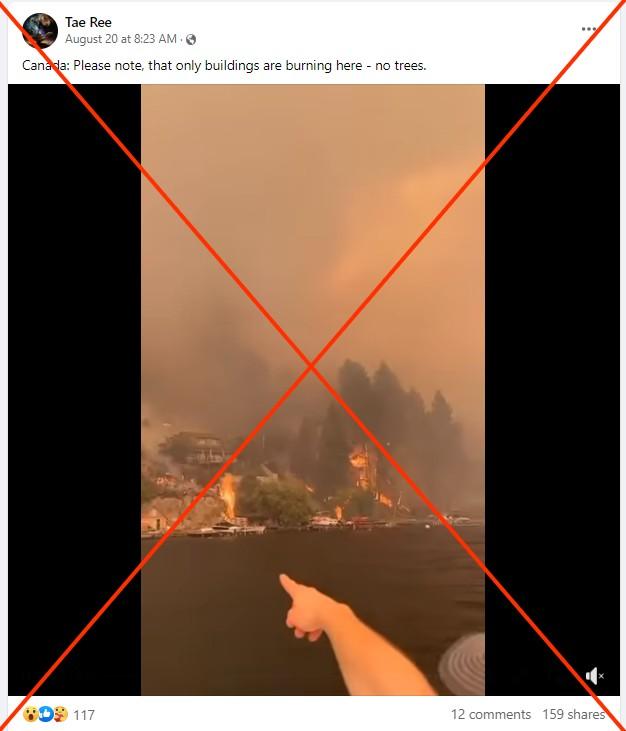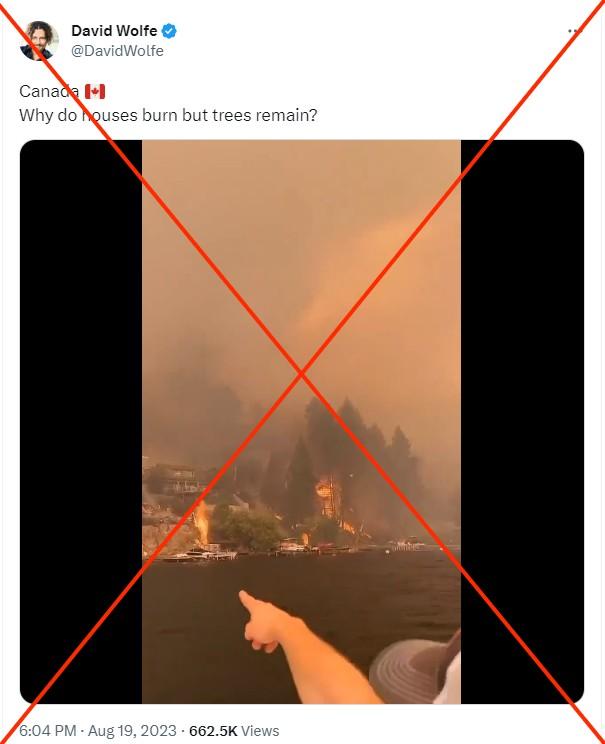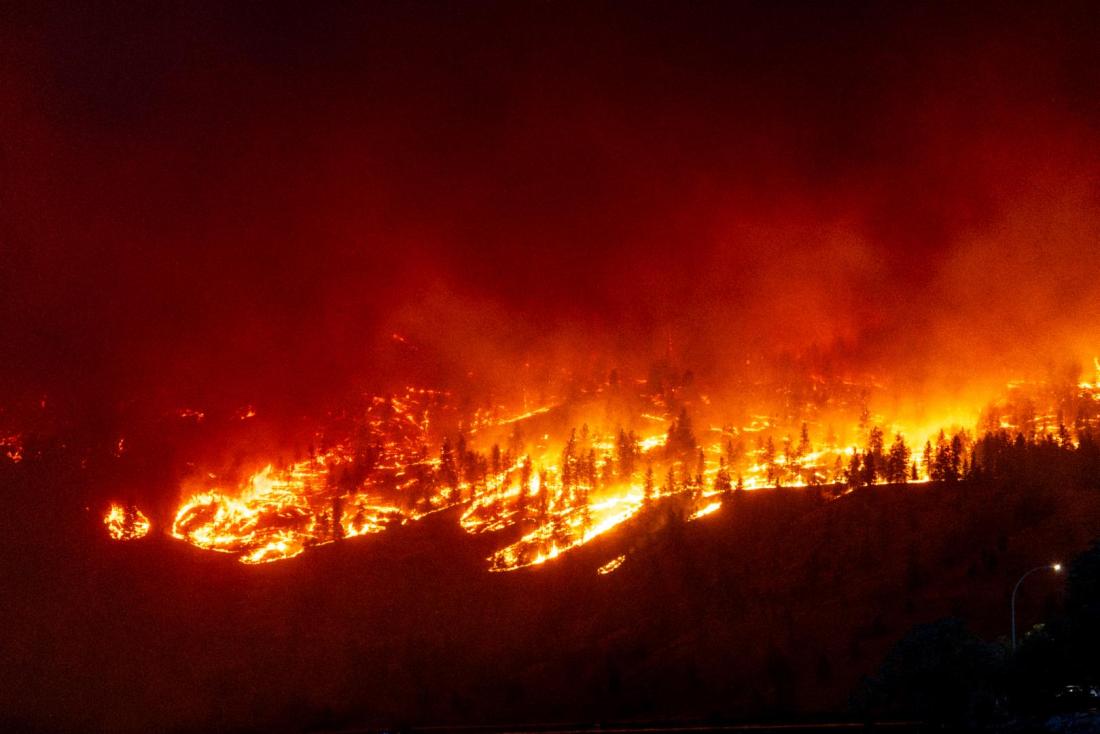
Posts falsely claim trees unscathed in Canadian wildfires
- This article is more than two years old.
- Published on August 29, 2023 at 18:24
- 3 min read
- By Gwen Roley, AFP Canada
"Canada: Please note, that only buildings are burning here - no trees," says the caption of an August 20, 2023 Facebook video.
The clip shows residential structures burning on a lakeshore while the trees appear untouched. The same footage circulated elsewhere on Facebook, TikTok and X -- formerly known as Twitter -- alongside claims that the British Columbia blazes were an attack.
"Yes, they have controlled the weather since the 1920s," says the caption of an August 19 Instagram post.


Another post on X says directed energy weapons caused the wildfires -- a baseless conspiracy theory that took off following devastating fires in the US state of Hawaii. Others falsely claim such blazes are being set to force people into 15-minute or smart cities, which AFP has also debunked.
In August, a wave of intense fires forced tens of thousands of people to evacuate the Okanagan Valley near Kelowna, British Columbia (BC).
Contrary to the claims swirling online, BC Wildfire Service Information Officer Nicole Bonnett told AFP "a large number of trees" burned, pointing to photos on the provincial government's website (archived here).
She said investigators are still looking into the cause of the wildfires, but that dry and windy conditions exacerbated them.
Stray embers ignite plants, buildings
A local news report (archived here) featured the footage shared online in a segment about homes lost in West Kelowna. The video appears to have been filmed on Okanagan Lake, where structures and trees were affected.
The Central Okanagan Emergency Operations Centre (EOC) confirmed dry weather was the main driver of the fires' spread.
"Wildfires can produce significant embers that can ignite flammable vegetation, buildings and other fuel sources in properties adjacent to the active fire," the organization told AFP in an August 23 email.

The EOC said that as a semi-arid region, the Okanagan Valley is more susceptible to fire -- but this year has been worse than previous seasons.
"Conditions here are typically dry, but fire risks have been extraordinary this summer as we have seen extreme drought and record heat conditions in the area," the organization said.
Michael Mehta, a professor of environment, culture and society at Thompson Rivers University, said that even in drought conditions, the coniferous trees of British Columbia contain more water than houses, which means residential structures would be quicker to ignite.
"Trees generally have a bit more protection around them than buildings," he said August 21.
Buildings made of dry wood or timber can create "an environment in the house where once the spark gets through a roof system or a gap along the roof ridge line, then it's in a very dry location and will burn very quickly," Mehta added.
Since the beginning of Canada's record-breaking wildfire season, social media users have claimed the fires were started intentionally for nefarious purposes. While officials say causes can take several months to investigate, hot, dry and windy conditions exacerbated by climate change allow blazes to spread more quickly.
AFP previously debunked claims that the August wildfires on the island of Maui spared trees, indicating the flames were intentionally set.
More of AFP's reporting on misinformation in Canada can be found here.
Copyright © AFP 2017-2026. Any commercial use of this content requires a subscription. Click here to find out more.
Is there content that you would like AFP to fact-check? Get in touch.
Contact us
